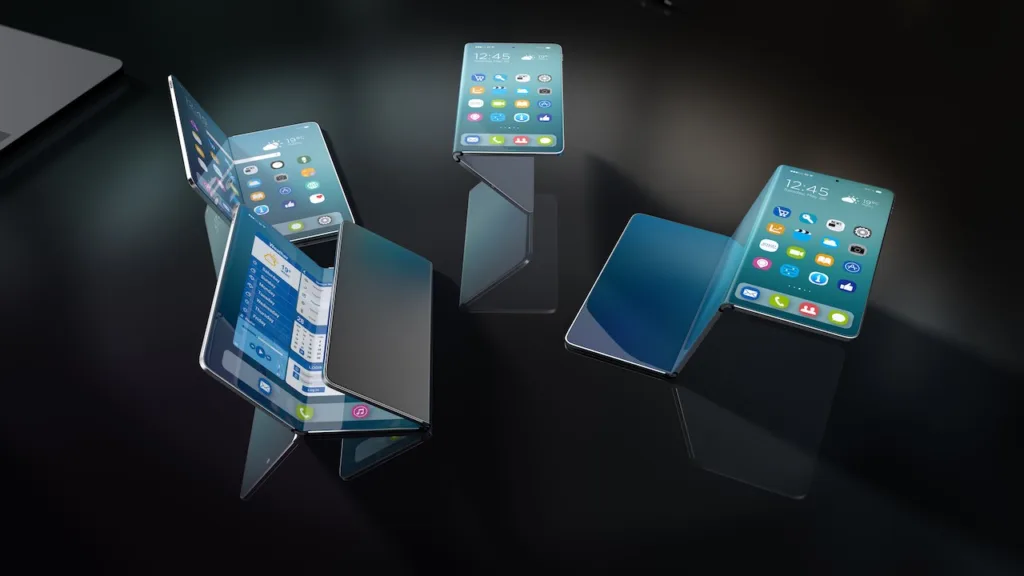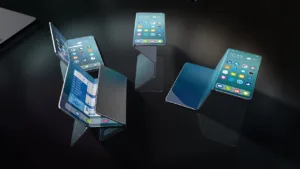Vivo’s new flagship phones, vivo X Flip and vivo X Fold 2, are packed with glass innovations from Schott, the company whose founder Otto Schott invented specialty glass. The vivo X Flip is the first foldable phone to be certified by TÜV Rheinland to withstand over 500,000 folds. This model features Schott UTG, a flexible glass thinner than a human hair with outstanding bending strength after processing. Both models have external displays protected by Schott’s most drop-resistant cover glass Xensation Alpha. The imaging systems of these phones, co-engineered with Zeiss, are protected by high-performance Xensation Up cover glass designed for camera modules.

Schott UTG is a flexible glass that has become the industry standard for foldable displays. Schott has about 60 years of experience in producing thin glasses and holds a 1992 Guinness World Record for developing the thinnest glass on Earth. They have also developed a 16 µm thick glass in the laboratory. Schott is the first company to mass produce UTG that can be chemically strengthened, enabling a small bending radius after processing and the potential to bend hundreds of thousands of times.
High-Performance Glass
Xensation high-performance glass offers maximum protection for high-end mobile devices. The imaging systems in vivo’s new models, co-engineered by vivo and Zeiss, are protected by Schott high-performance cover glass Xensation Up. This cover glass is designed for camera module geometries and is thin yet durable to protect internal optics components.
The external displays of vivo X Flip and vivo X Fold 2 are protected by Xensation Alpha, Schott’s most drop-resistant cover glass made from lithium-alumino-borosilicate (LABS) glass. This glass type combines the chemical strengthening potential of lithium-alumino-silicate glass with the scratch resistance of borosilicate glass and the stability similar to glass-ceramics. Xensation Alpha offers a 100% improvement in drop resistance on rough and uneven surfaces compared to other premium cover glass and is more scratch resistant than conventional LAS glass as shown in the Knoop scratch test.
This launch continues the long-term partnership between vivo and the German sister companies under the Carl Zeiss Foundation, Zeiss and Schott. Vivo has been the first smartphone manufacturer to feature Schott’s latest high-performance cover glass Xensation Alpha. Vivo’s first foldable model, vivo X Fold, also came loaded with Schott specialty glass innovations, including foldable ultra-thin glass from Schott UTG series and high-performance cover glass from the Schott Xensation series.
Who was Otto Schott
Otto Schott (1851-1935) was a German chemist, glass technologist, and inventor who is best known for his pioneering work in the development of specialty glass and the establishment of modern glass science. He made significant contributions to the fields of glass manufacturing and optical glass production. In 1884, Schott founded the Jena Glassworks, later known as Schott AG, in collaboration with Ernst Abbe and Carl Zeiss. The company became renowned for producing high-quality optical and technical glass.
Otto Schott’s groundbreaking work in the field of glass technology led to numerous innovations that have significantly impacted various industries. One of his most notable inventions was the development of borosilicate glass, known as “Duran” or “Jenaer Glas.” This unique type of glass is characterized by its low coefficient of thermal expansion, which makes it highly resistant to thermal shock. This exceptional property has made borosilicate glass an ideal choice for laboratory glassware, cooking products, and optical instruments.

